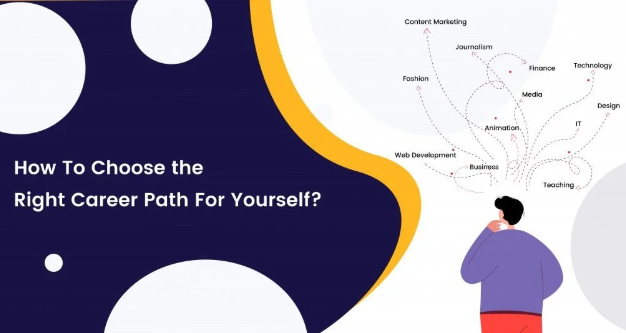Do You Know How to Choose Your Perfect Career Path
#CareerChoice, #CareerPath, #FutureJobs, #CareerAdvice, #JobSearch, #PassionToProfession, #SelfDiscovery, #CareerGoals, #LifePlanning, #SmartDecisions, #WorkLifeSuccess, #DreamCareer, #ProfessionalGrowth, #Career
KNOWLEDGE & EDUCATION
7/28/20252 min read


Choosing the right career is one of the most important decisions you'll ever make. It determines not only your professional future but also your happiness, purpose, and lifestyle. Yet, with so many options, most people feel overwhelmed. If you're wondering how to find the career that's truly right for you, this guide will help you step-by-step.
1. Know Yourself First
Before looking outward, look inward.
Identify your strengths: What are you naturally good at? (e.g., problem-solving, communication, creativity)
Know your interests: What topics excite you? (e.g., science, art, finance)
Understand your values: Do you value freedom, stability, creativity, or helping others?
Personality matters: Tools like the MBTI or Big Five can give deep insights into your working style.
✅ Self-awareness is the first step to career clarity.
2. Explore Career Options
Now that you understand yourself better:
List potential careers based on your interests and strengths.
Use platforms like LinkedIn, Coursera, or CareerExplorer to discover emerging roles.
Research each field — growth prospects, salaries, work-life balance, required education.
Talk to people in those fields via informational interviews.
✅ Don't just guess — investigate thoroughly.
3. Education and Skills Planning
Once you’ve shortlisted careers, map out what it takes:
Do you need a specific degree or certification?
Can you take short online courses first to test the waters?
Are there internships or volunteer opportunities to gain real-world exposure?
💡 Tip: Skills like communication, digital literacy, and critical thinking are valuable in all careers.
4. Take Career Tests (But Don’t Depend on Them Alone)
Career aptitude tests can give direction:
Try free tools like 16personalities.com, CareerExplorer, or MAPP.
Use the results to confirm or challenge your ideas — not to make the decision for you.
Combine test results with your real interests and research.
✅ Use tests as guides, not as answers.
5. Consider the Future Job Market
Don’t just pick a career because it’s trendy now — think long-term.
Fields with high future demand:
Artificial Intelligence & Machine Learning
Healthcare & Mental Health
Green Energy & Sustainability
Cybersecurity & Data Analytics
Content Creation & Digital Marketing
Declining fields: Jobs heavily dependent on manual, repetitive tasks.
✅ Choose a career that aligns with both your passion and future potential.
6. Get Experience Early
The best way to know what suits you is to try it.
Internships
Freelance projects
Volunteering
Part-time work during studies
These give you a feel of real work environments — and enhance your resume.
7. Be Open to Change
Many people don’t stick to one career throughout their life.
It’s okay to pivot or change direction after gaining experience.
What you choose at 20 may evolve at 30 — flexibility is strength.
Keep learning and upskilling to adapt with time.
✅ Your career is a journey, not a single destination.
8. Ask Mentors and Career Coaches
A mentor can see things in you that you may miss.
Talk to teachers, working professionals, or certified career coaches.
Use LinkedIn or school alumni networks to find people in your dream fields.
Ask for honest insights and advice — most people are willing to help.
Conclusion
Choosing your perfect career is not about picking the most popular or highest-paying job. It’s about aligning your passion, strengths, values, and market needs. The more you know about yourself and your options, the more confident you’ll be in your path.
Your dream career isn’t found — it’s created through exploration, learning, and growth.
Knowledge
Empowering minds with reliable educational content daily.
Newsletter Signup
© 2025 DoYouKnow. All rights reserved.
Stay Ahead of the Trends – Join Our Newsletter
